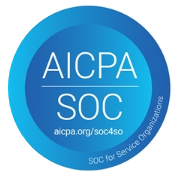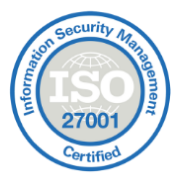If you want to grow your business, partnering with other companies can be powerful. However, you need to invest in channel partner training to make the most of these relationships. This means giving your partners the knowledge and skills they need to sell and promote your products or services effectively. A strong channel partner training strategy can help ensure that your partners are aligned with your goals and values and equipped to provide the best possible customer experience. To get the most out of your training efforts, following some best practices is essential. Let’s know them in detail.
Why Do Channel Partners Need Training?
Channel partners are independent organizations that sell or distribute products or services on behalf of a company. While they may have experience in their respective fields, they may need to become more familiar with the intricacies of the products or services they sell. Hence, it is important to provide them with regular training to ensure they understand the products or services, including their features, benefits, and unique selling points. This training enables them to sell effectively, provide better customer service, and ultimately drive sales growth for the company and themselves. Additionally, training can help channel partners stay up-to-date with industry trends, product updates, and regulatory changes.
Elearning Courses Can Be Accessed Anytime, Anywhere
eLearning courses have become increasingly popular due to their convenience and flexibility. Unlike traditional classroom-based learning, e-learning courses can be accessed anytime, anywhere, with an internet connection. This means that learners can study at their own pace, in their own time, and in their preferred location, whether at home, at work, or on the go. Furthermore, e-learning courses can be accessed on various devices, including desktops, laptops, tablets, and smartphones, further enhancing their accessibility.
Overall, e-learning courses offer learners the flexibility to fit learning around their busy schedules, making them a popular choice for people with busy lives.
Creating a Channel Partner Training Strategy That Works
Creating an effective channel partner training strategy is essential for companies that rely on channel partners to distribute or sell their products. Such a strategy helps ensure that channel partners are equipped with the necessary knowledge and skills to effectively promote and sell the company’s products, resulting in increased revenue and customer satisfaction. However, creating a training strategy that works requires careful planning and execution, considering each partner’s unique needs and challenges. This section will explore key considerations for creating a channel partner training strategy that delivers results.
1. Evaluate Channel Training Needs
A Channel Partner Training Strategy is a plan that outlines how an organization will educate and support its channel partners, such as resellers, distributors, or agents, to improve their ability to sell and promote its products or services. This strategy involves identifying the training needs of the channel partners, designing a comprehensive training program that includes product knowledge, sales skills, and technical training, delivering the training program through various methods such as online courses, webinars, in-person training sessions, and workshops, and measuring the effectiveness of the training program through feedback from channel partners, sales performance metrics, and overall customer satisfaction ratings. An effective channel partner training strategy helps to build a strong and loyal channel partner network, increase sales revenue, and enhance the overall customer experience.
2. Align Your Partner Enablement Goals with Your KPIs
Aligning your partner enablement goals with your KPIs (Key Performance Indicators) is crucial for measuring the success of your channel partner program. KPIs are measurable metrics that help organizations track their progress toward achieving their goals. By aligning partner enablement goals with KPIs, organizations can ensure that their channel partners are being trained and enabled to achieve the desired results. For example, suppose an organization aims to increase revenue through channel partners. In that case, they can align that goal with KPIs such as the number of new deals closed by channel partners or the total revenue generated. By setting specific, measurable KPIs that align with partner enablement goals, organizations can track the effectiveness of their partner enablement efforts, identify areas for improvement, and make data-driven decisions to optimize their channel partner program.
3. Choose the Right Platform
Choosing the right Platform for channel partner training is a critical decision that can significantly impact the success of a company’s channel management strategy. The ideal Platform should be user-friendly, flexible, and scalable, offering different learning options, customization, and integration with other tools and systems. It should also have advanced reporting and analytics features, allowing companies to track partner performance and engagement and make data-driven decisions about their training programs. In addition, the Platform should accommodate the evolving needs of the partner network, and training content should be accessible from any device.
4. Motivate Channel Partners
Motivating channel partners is crucial to building strong relationships and achieving business success. One effective way to encourage channel partners is to provide them with incentives such as bonuses, rewards, and recognition for achieving their sales targets or other performance goals. Another way is to offer training and support programs that help partners develop the necessary skills and knowledge to represent the brand effectively. Clear communication and transparent processes also play a significant role in keeping channel partners motivated, as it helps them understand their role in achieving shared goals.
5. Make Communication Easy
Making communication easy is vital for any successful business relationship, particularly with channel partners. To facilitate effective communication, companies should ensure that partners have easy access to the information they need to represent the brand effectively, such as product updates, marketing materials, and training resources. This can be achieved through online portals, shared folders, or other digital platforms allowing easy access and collaboration. Companies should also provide clear communication channels, such as email or messaging systems, that partners can use to ask questions or raise concerns. Regular check-ins and feedback loops are also essential to maintaining open communication and building trust with channel partners.
6. Stage Your Training
To ensure maximum effectiveness, it’s essential to stage your training program when providing channel partner training. Breaking down the training into stages, such as introductory, in-depth, hands-on, and ongoing training, can help partners absorb and retain information better. For example, basic training should focus on introducing partners to the company and its products, followed by more in-depth training on specific product categories. Finally, hands-on training should be provided to allow partners to apply their knowledge and develop their skills.
Get the Most Out of Your Partners Through Training
AI-Powered Paradiso LMS is a powerful platform for delivering practical channel partner training. With customizable course creation, multimedia and interactive tools, collaboration features, a user-friendly interface, mobile compatibility, and advanced reporting capabilities, AI-Powered Paradiso LMS offers a comprehensive solution for creating engaging and personalized training programs that can help maximize a company’s partner network’s potential and achieve their business goals.


















